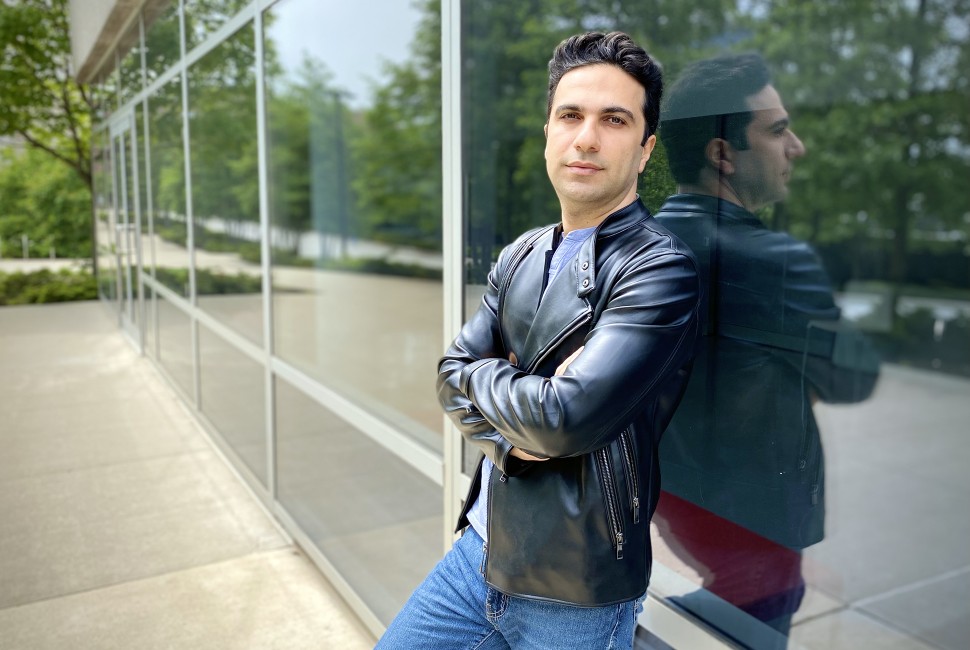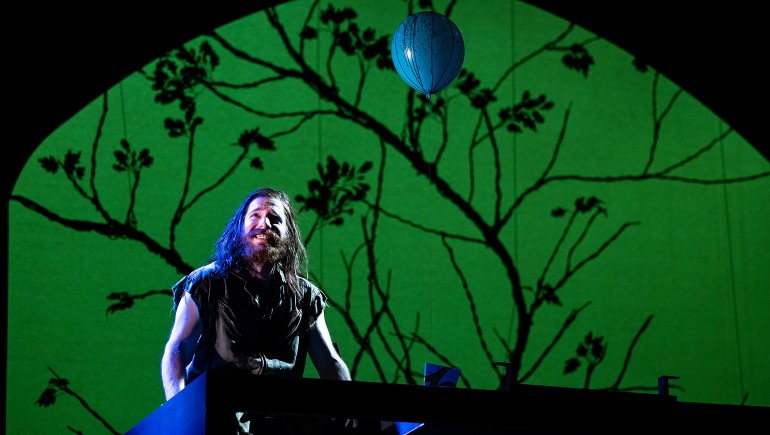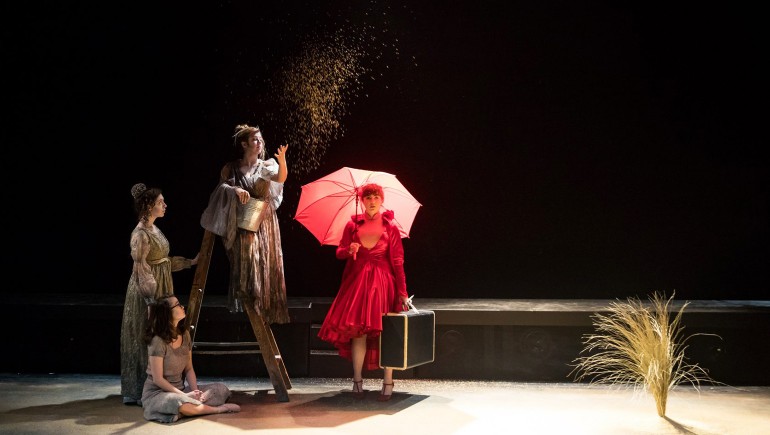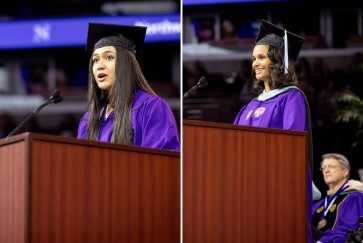Stories that are set far away from us can be the most important ones to experience. Hamid Dehghani, graduating School of Communication student, believes as a director, he has a responsibility to intentionally challenge misconceptions.
“We don’t need to follow the current trend — we create trends. We need to think about what stories we can bring to start a new conversation,” said Dehghani, who arrived at Northwestern in 2018 to begin the MFA theater program in directing.
His passion for theater began early, acting in school plays in Kharg, an island in the Persian Gulf in southern Iran. He studied theater at Tehran University of Art where he first tried directing and discovered “a deep and fundamental joy.” As a working theater director in Tehran, he had read books and plays about American theater and wanted to learn more about how people make theater in the U.S.
As a Northwestern graduate student, Dehghani’s directing projects included “A Moment of Silence,” “Eurydice” and most recently “Bengal Tiger at the Baghdad Zoo,” the magical realist drama by Rajiv Joseph that follows two U.S. Marines, their Iraqi translator and a quick-witted tiger through a war-torn Baghdad filled with ghosts and riddles.
Northwestern Now spoke with Dehghani about his experiences in directing for American audiences.
What was the biggest challenge you overcame at Northwestern?
The biggest challenge has been making the transition from working for an Iranian audience. You can’t become an instant American director. You have your whole life and country with you.
The first play I directed here in 2019 was “A Moment of Silence” by Mohammed Yaghoubi. It was very political and a big deal in Iran when it was produced. It was taken down because of the political themes in the play. When I produced it here, I found audiences were not able to get many of the references. They were only engaged in the story.
I’ve had to figure out how to use my identity as an Iranian director but also create work for American audiences. It has been a three-year process.
How are American audiences different?
America is very big, and there are many problems in the U.S. itself. When things happen far away, for example, a war in the Middle East, it is a piece of news. Americans don’t identify with the people in certain countries. They are not humanized because they don’t know them well.
I thought I can be a bridge between what I know and feel as a Middle Eastern artist and introduce American audiences to plays that humanize people who are far away from American people.




